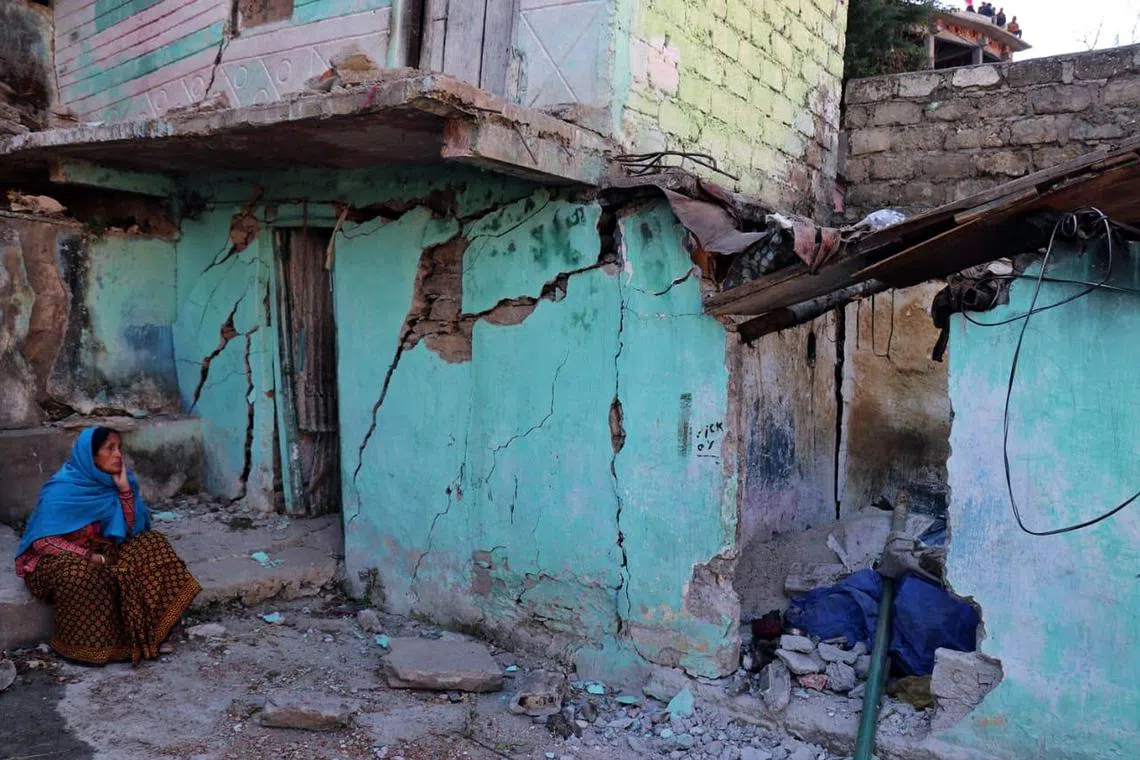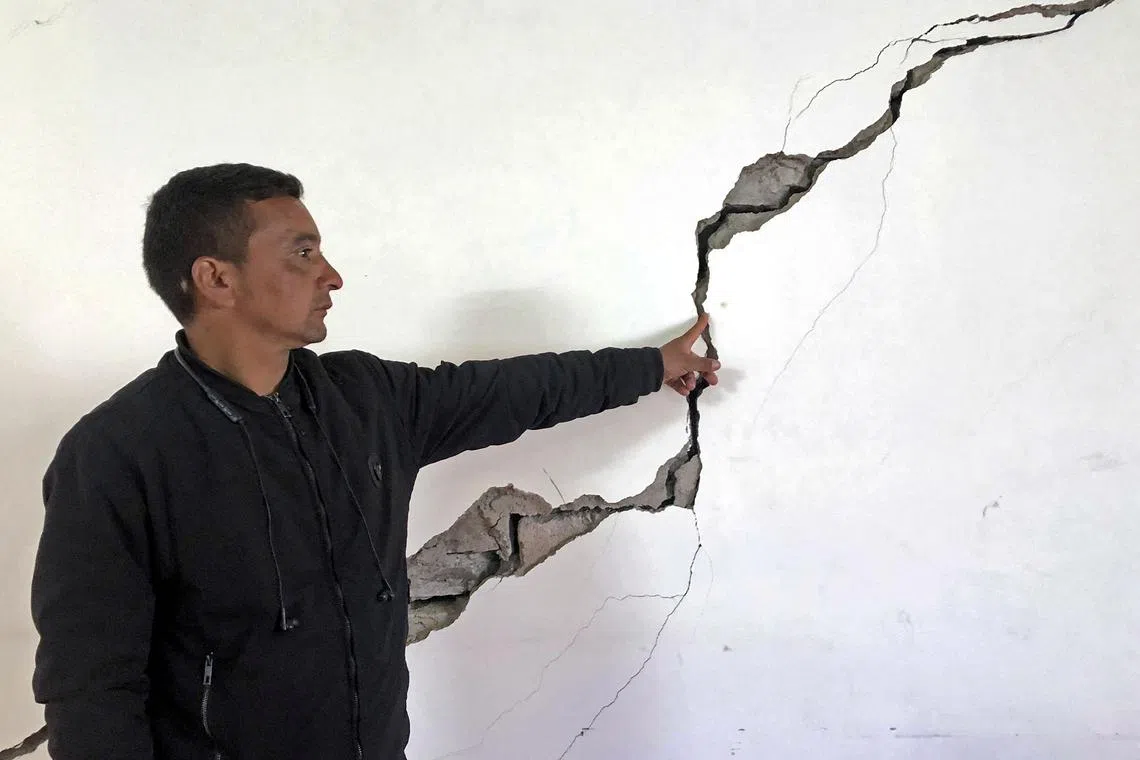India set to demolish buildings in sinking Himalayan town
Sign up now: Get ST's newsletters delivered to your inbox

A resident sitting next to a cracked wall of her house in the Himalayan town of Joshimath on Jan 8.
PHOTO: AFP
Follow topic:
LUCKNOW, India/ NEW DELHI - India’s top court is expected to hear a petition on Tuesday seeking to halt construction of a hydroelectric project after large cracks appeared in hundreds of houses across the Himalayan town of Joshimath.
The Supreme Court of India may hear the urgent plea filed by a local Hindu religious leader after land subsidence - gradual sinking due to displacement of underground earth layers - led to cracks in more than 600 buildings in the tiny town located in the north Indian hilly state of Uttarakhand.
The petition, which comes after cracks intensified in the past few weeks, also wants an insurance cover for and rehabilitation of displaced residents.
The crisis at Joshimath, which is built on the debris of an old landslide, spotlights the tradeoffs policymakers face between development and ecological preservation.
The gateway town for mountain expeditions and Hindu pilgrimage sites like Badrinath has seen rapid infrastructure growth plus massive tourist footfalls, damaging the fragile ecosystem and triggering frequent landslides and flash floods.
While relief and rescue operations for affected families are underway, the lawsuit has sought the court’s intervention in halting work on a tunnel being built by state-run NTPC Ltd for its hydroelectric power project nearby until it is examined and approved by a panel of geologists, hydrologists and engineers.
NTPC, India’s biggest power producer, is constructing the Tapovan-Vishnugat hydroelectric power project close to Joshimath, but has denied its construction activities led to the land subsidence.
“The tunnel built by NTPC does not pass under Joshimath town,” the company said in a Jan 5 statement, adding that no blasting was being carried out currently while building the tunnel.
The deep fissures in the buildings at Joshimath are likely due to a combination of factors including unchecked infrastructure growth, construction of the power project, absence of a proper drainage system and violation of municipal rules around building homes, according to Uttarakhand-based professor of geology Y.P. Sundriyal of HNB Garhwal University.
‘Messing up’
“People are messing up the environment and disturbing the Himalayas’ fragile ecosystem,” he said.
Prime Minister Narendra Modi’s government is seeking advise from geologists and disaster management experts to formulate long- and short-term action plans, his office said in a statement on Sunday.
Besides the town’s significance for Hindu pilgrims and biodiversity enthusiasts, it’s also a key military garrison for the Indian army that defends a part of the disputed border between India and China. Its importance has only increased after the recent border dispute with China escalated.
Army post
The Indian army is on standby to move in for rescue and evacuation, a senior military official said, adding that a few military installations have also been damaged.
Environmentalists have been red-flagging Uttarakhand’s breakneck economic development for decades. Incidents of land subsidence were reported as early as the 1970s.

Large cracks have appeared in hundreds of houses across the Himalayan town of Joshimath.
PHOTO: AFP
An expert panel report way back in 1978 had said that no major construction work should be carried out in Joshimath and the nearby Niti and Mana valleys, local news wire PTI reported, as these are situated on top of moraines - a mass of soil and rocks left behind by a moving glacier.
Indian authorities will demolish some buildings in the town, an official said on Tuesday.
“Six structures from across four wards have been found very unsafe,” Mr Himanshu Khurana, a top official in Chamoli district, where Joshimath is located, told Reuters.
“We will demolish some unsafe buildings based on the recommendation and under the guidance of federal experts.”
Two buildings have been identified already for demolition, he said, without clarifying when that could happen.
Local resident Prakash Bhutiyal, 50, said seven of the 11 rooms in his residence-cum-guest house had developed cracks, and they were waiting to be moved to a safer location.
“Our family of nine has been forced to live in just one room,” he said. “We have kept all our belongings in the open. We are yet to be shifted to a safer place.” BLOOMBERG, REUTERS

